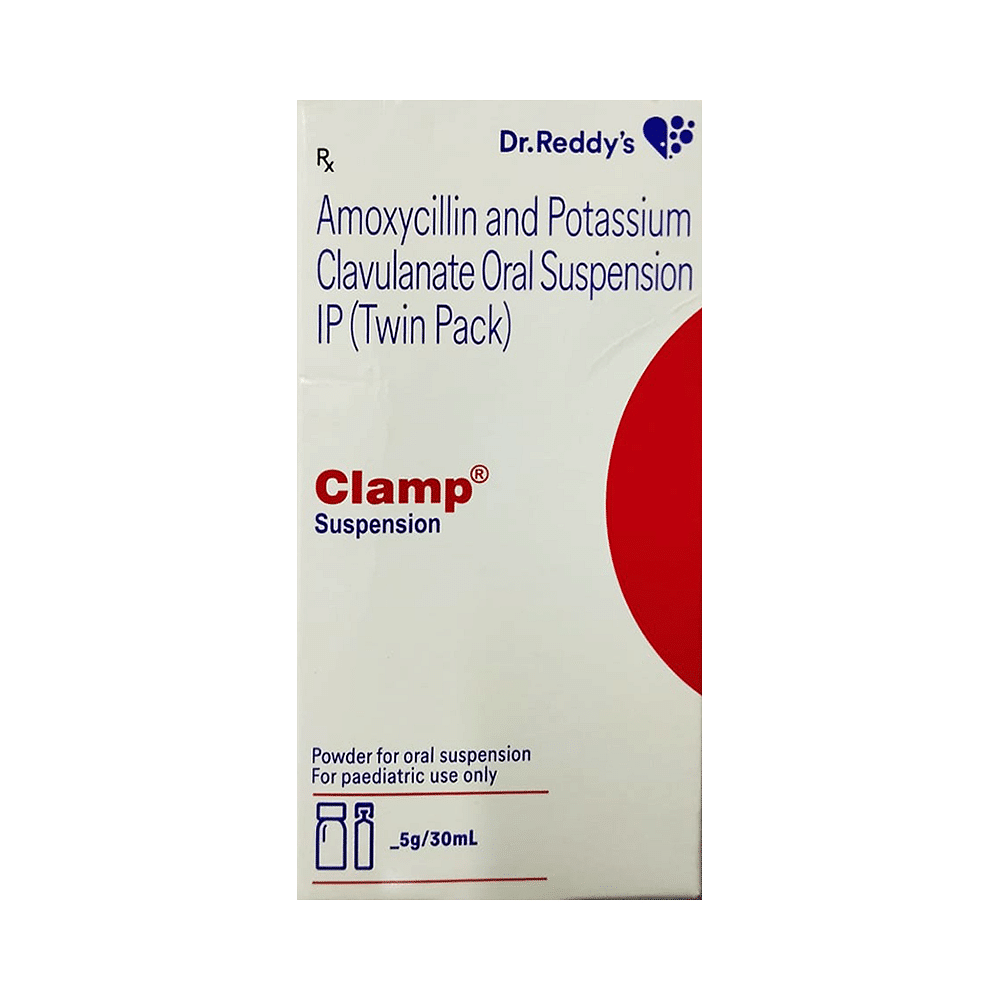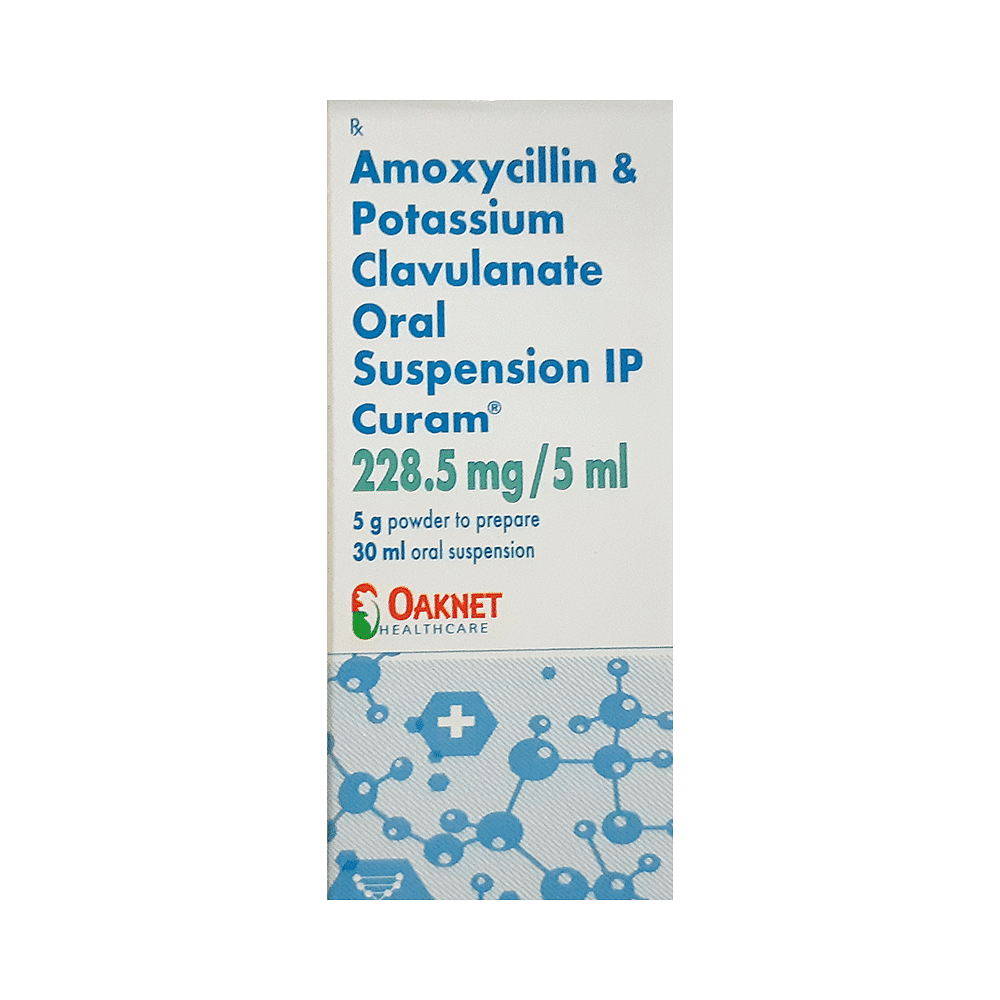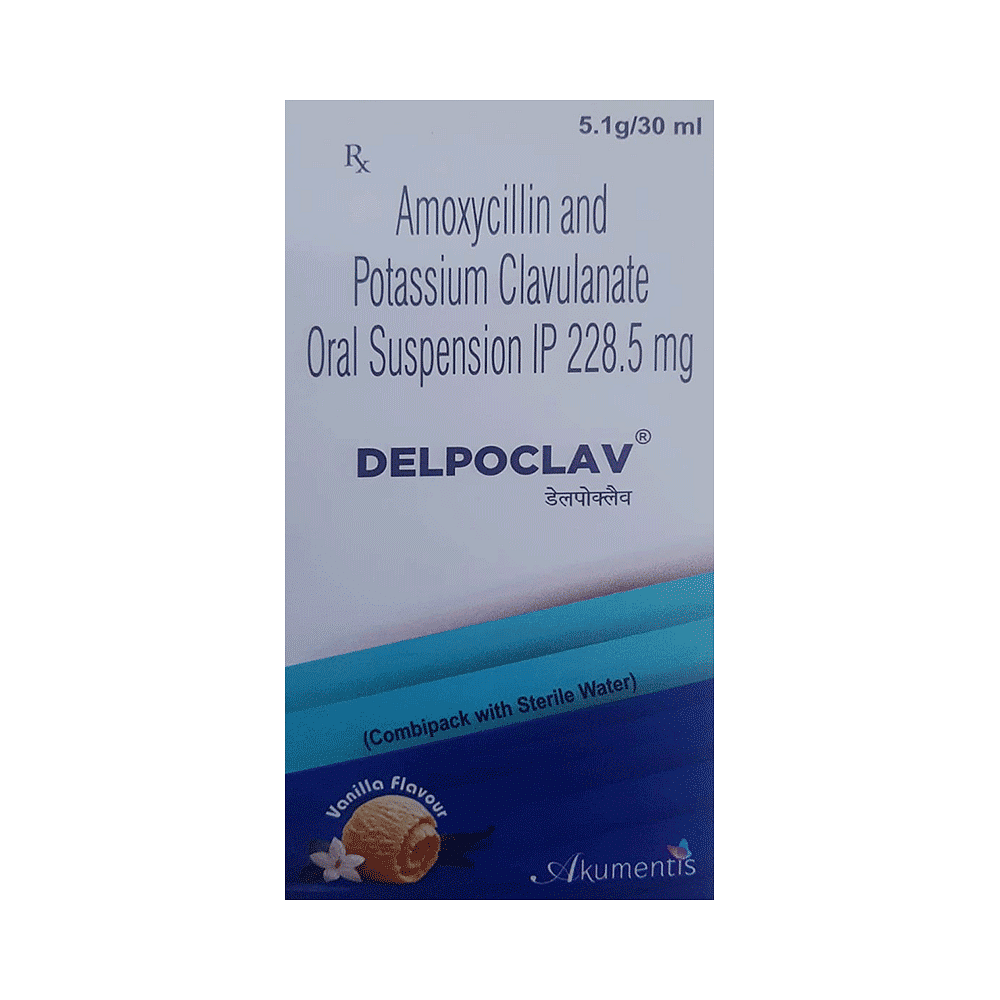
Actis HS 200 mg/28.5 mg Suspension
Manufacturer
Pharmed Ltd
Salt Composition
Amoxycillin (200mg) + Clavulanic Acid (28.5mg)
Key Information
Short Description
Actis HS 200 mg/28.5 mg Suspension is an antibiotic medicine that helps treat bacterial infections of the ear, nose, throat, chest, lungs, teeth, skin, and urinary tract.
Dosage Form
Suspension
Introduction
Actis HS 200 mg/28.5 mg Suspension is an antibiotic medicine that helps treat bacterial infections of the ear, nose, throat, chest, lungs, teeth, skin, and urinary tract. It is capable of killing bacteria that have become resistant to other therapies and thus also helps treat tuberculosis that is resistant to other treatments.
Directions for Use
Your child must complete the entire course of antibiotics. Stopping too soon may cause the bacteria to multiply again or cause another infection.
How it works
Actis HS 200 mg/28.5 mg Suspension is an antibiotic. It has two active agents amoxycillin and clavulanic acid. Amoxycillin works by preventing the formation of the bacterial protective covering (cell wall) essential for the survival of the bacteria. Whereas clavulanic acid serves a special purpose of inhibiting an enzyme (beta-lactamase) that is produced by resistant bacteria. This makes the combination of amoxycillin and clavulanic acid an effective line of treatment for many types of infections.
Quick Tips
Your child must complete the entire course of antibiotics. Stopping too soon may cause the bacteria to multiply again or cause another infection. Your child may have a bitter taste in the mouth after the intake of Actis HS 200 mg/28.5 mg Suspension. Eating citrus fruit or sipping plenty of water or fruit juice may help. Encourage your child to drink plenty of water in case diarrhea develops as a side effect. Never give Actis HS 200 mg/28.5 mg Suspension until and unless prescribed by the doctor. Do not give Actis HS 200 mg/28.5 mg Suspension to treat common cold and flu-like symptoms caused by viruses. Never save medicine for future illnesses. Check ‘expiry’ before giving Actis HS 200 mg/28.5 mg Suspension to your child. Stop Actis HS 200 mg/28.5 mg Suspension immediately if your child develops an itchy rash, facial swelling, or breathing difficulty.
Related Medicines

Clamp Suspension

Ampoxin-CV 200mg/28.5mg Suspension

Curam 228.5mg/5ml Suspension

Moxica CV Suspension

Amoxytop CV 200mg/28.5mg Suspension

Delpoclav 200mg/28.5mg Suspension

Symbiotik XL Suspension

Claventin Suspension

Moxid Duo Suspension

AC Duo DS Suspension
Frequently asked questions
Can other medicines be given at the same time as Actis HS 200 mg/28.5 mg Suspension?
Actis HS 200 mg/28.5 mg Suspension may interact with other medications. Before starting this medication, always inform your doctor about all other medications your child is taking. It's important to consult your child's healthcare provider for guidance regarding any new medicines.
Can I get my child vaccinated while on treatment with Actis HS 200 mg/28.5 mg Suspension?
Generally, antibiotics do not interfere with the ingredients in vaccines and do not cause adverse reactions in children after vaccination. However, it's crucial to delay giving a vaccine until your child fully recovers from their illness. Once they feel better, the vaccine can be administered.
Which lab tests may my child undergo while taking Actis HS 200 mg/28.5 mg Suspension on a long-term basis?
Periodically, your doctor might order kidney and liver function tests to monitor your child's condition during prolonged therapy with Actis HS 200 mg/28.5 mg Suspension.
Can I give a higher than the recommended dose of Actis HS 200 mg/28.5 mg Suspension to my child?
Never exceed the recommended dosage for Actis HS 200 mg/28.5 mg Suspension as it could increase the risk of side effects. If your child experiences worsening symptoms, contact their doctor for re-evaluation.
Can I stop giving Actis HS 200 mg/28.5 mg Suspension to my child when the symptoms are relieved?
Stopping this medication without completion of the prescribed course can be harmful, even if your child feels better. It's important to continue the full course of treatment as long-lasting effects may still be occurring.
Can the use of Actis HS 200 mg/28.5 mg Suspension cause diarrhea?
Yes, Actis HS 200 mg/28.5 mg Suspension can sometimes cause diarrhea. This is because it's an antibiotic that combats harmful bacteria, and also might affect the good bacteria in your child's digestive system, leading to diarrhea. Encourage your child to drink adequate fluids if experiencing this side effect. If it persists or you notice dehydration symptoms (like less frequent urination, dark-colored and strong-smelling urine), consult a doctor before administering any other medication.
Do all viral common colds result in secondary bacterial infection?
While most viral infections don't lead to secondary bacterial infections, it's crucial to be cautious. Consulting with your child's doctor is essential for determining the appropriate course of action and whether or not antibiotics are necessary.
The mucus coming out of my child’s nose is yellow-green. Is it a sign of a bacterial infection?
Yellow or green discharge from the nose during a common cold is normal and often signifies changes in mucus consistency. These symptoms typically last for 7-10 days, but if your child experiences other worrisome symptoms like severe allergies (breathing difficulties, skin rashes), gastrointestinal complications (diarrhea), or signs of liver damage (weakness, paleness, vomiting), call their doctor immediately.
Is there any sign which shows that my child needs immediate medical attention?
You should contact your child's doctor right away if they experience serious allergic reactions (breathing difficulties, skin rashes), gastrointestinal infections (diarrhea), or liver damage (weakness, paleness, vomiting). Though rare, these symptoms require expert medical assistance.


